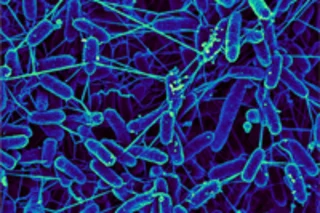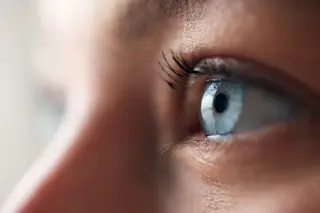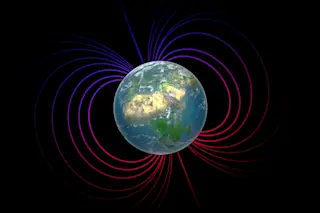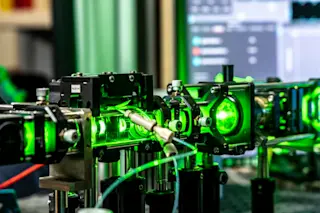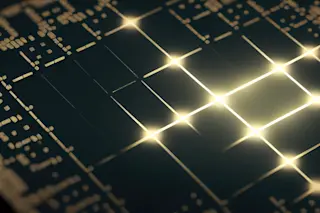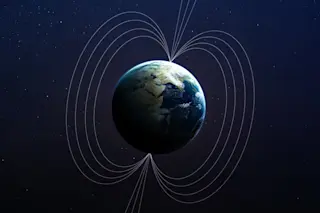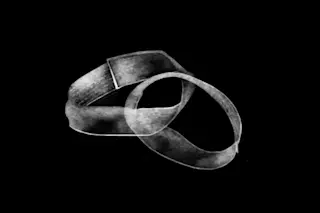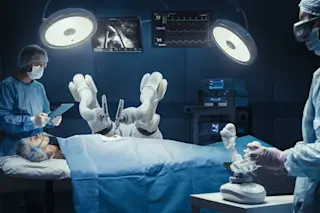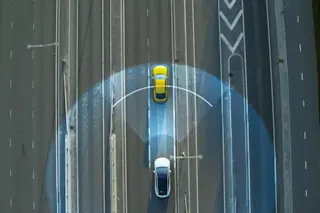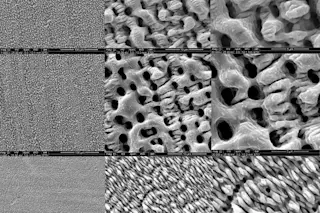A study released last week reveals that many kinds of bacteria sometimes grow minuscule protein-and-iron wires that conduct electricity. The researchers say the wired microbes "will give us insights into all of microbiology that we can't even dream of yet," potentially allowing us to build more-efficient biological fuel cells and understand an important dynamic in the life of bacteria.
The microbes in question have a natural ability to pluck electrons off their food or other things in their environment and transfer those electrons to nearby metal ions or oxygen molecules. Nobody knows for sure why the microbes do this in nature, but their talents are intriguing to engineers because this electron parade generates a small electrical current—a tiny source of renewable energy.
Until recently, scientists thought the bacteria had to have direct contact with the metal ions or oxygen molecules in order to complete the electron transfer, says Yuri Gorby ...


